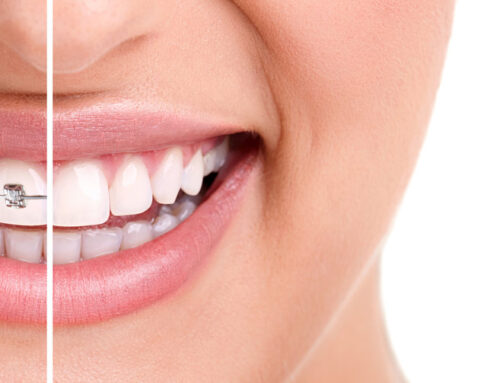 Thumb sucking and pacifier use are natural self-soothing behaviors for infants and young children. While these habits provide comfort during early development, prolonged thumb sucking or pacifier use can affect the alignment of your child’s teeth and jaw, potentially leading to orthodontic issues down the road. The good news is that early intervention can prevent or minimize these problems, helping your child develop a healthy, beautiful smile.
Thumb sucking and pacifier use are natural self-soothing behaviors for infants and young children. While these habits provide comfort during early development, prolonged thumb sucking or pacifier use can affect the alignment of your child’s teeth and jaw, potentially leading to orthodontic issues down the road. The good news is that early intervention can prevent or minimize these problems, helping your child develop a healthy, beautiful smile.
Understanding when these habits become concerning and what you can do about them is the first step in protecting your child’s oral health. Early orthodontic treatment can address issues caused by prolonged thumb sucking or pacifier use before they become more complicated. At Clemente Orthodontics, we help parents navigate these concerns with compassionate, evidence-based care.
How Thumb Sucking and Pacifier Use Affect Dental Development
When children suck their thumbs or use pacifiers for extended periods, the constant pressure can reshape the roof of the mouth and push teeth out of their natural positions. The intensity, duration, and frequency of the habit all play a role in whether orthodontic problems will develop. Most children naturally outgrow these habits between ages 2 and 4, but continued sucking beyond this point may lead to dental complications.
Common orthodontic issues resulting from prolonged sucking habits include an open bite, where the front teeth don’t meet when the mouth is closed. This occurs because the thumb or pacifier prevents the front teeth from erupting properly. Children may also develop an overbite, where the upper front teeth protrude significantly over the lower teeth. Additionally, the constant pressure can narrow the upper jaw, creating a crossbite where the upper teeth sit inside the lower teeth when biting down.
The shape and position of the tongue can also be affected. When a thumb or pacifier occupies space in the mouth for extended periods, the tongue may rest in an incorrect position, which can further contribute to bite problems and affect speech development.
When These Habits Become a Concern
Not all thumb sucking or pacifier use leads to orthodontic problems. Passive thumb sucking, where the thumb simply rests in the mouth, typically causes less damage than vigorous sucking that creates strong pressure. Similarly, orthodontic pacifiers designed to reduce dental impact may be preferable to thumbs or traditional pacifiers.
The American Association of Orthodontists recommends that children see an orthodontist by age 7. This timing allows orthodontists to identify any developing issues from sucking habits and other factors before they become severe. If your child is still sucking their thumb or using a pacifier past age 3 or 4, it’s worth scheduling a consultation to assess whether intervention is needed.
Many children stop these habits on their own, especially as they become more socially aware or when they start school. However, some children need additional support to break the habit. Positive reinforcement, gentle reminders, and identifying triggers that cause your child to seek comfort through sucking can help. For persistent habits, an orthodontist may recommend a mouth appliance that makes sucking less satisfying without causing discomfort.
Treatment Options for Orthodontic Issues
If thumb sucking or pacifier use has already caused dental problems, several treatment options can help correct the issues. Early intervention often produces the most effective results because a child’s jaw is still growing and more responsive to treatment.
Palatal expanders can widen a narrow upper jaw, creating proper alignment between the upper and lower teeth. This treatment is particularly effective for crossbites caused by prolonged sucking. Braces or clear aligners may be recommended for older children or teens to correct bite problems and align teeth properly. In some cases, habit-breaking appliances can be placed in the mouth to gently remind children not to suck their thumbs while supporting proper tongue positioning.
The key to successful treatment is addressing the habit first. Correcting the dental problems won’t provide lasting results if your child continues thumb sucking or pacifier use, so breaking the habit is often the first step in any treatment plan.
Schedule a Complimentary Consultation at Clemente Orthodontics
Early attention to thumb sucking and pacifier habits can save your child from more extensive orthodontic treatment later. If you’re concerned about how these behaviors may be affecting your child’s dental development, we’re here to help you understand your options and create a plan that works for your family.
As a Diamond Plus Invisalign® Provider, we’re among the top 1% of orthodontists in the country and the number one Invisalign® provider in New York and New Jersey. Our team provides comprehensive orthodontic care for patients of all ages at our Ridgewood, NJ, New City, NY, and Woodcliff Lake, NJ locations. Meet our orthodontists and discover how we can help your child achieve a healthy, confident smile. Contact us today to schedule your complimentary consultation.

Medically reviewed by:
The Orthodontic Team at Clemente Orthodontics
November 17, 2025
At Clemente Orthodontics our expert dental team takes great care in providing orthodontic treatment and Invisalign solutions for our patients.





